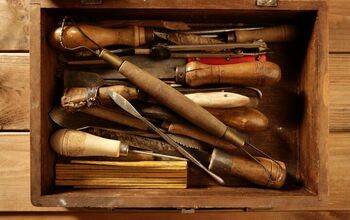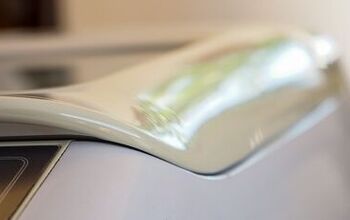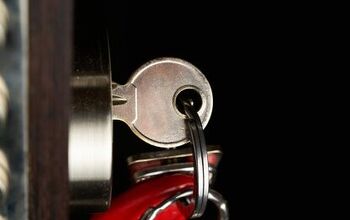How To Dispose Of Knives Safely (Here Are 5 Tips)

Anyone who has invested a lot of money in kitchen knives is aware of how crucial maintenance is. The cost of replacing a dull knife every year is clearly not economical. Any knife can be revived, regardless of how dull it is, although it is much more difficult to do it if the blade is fractured or has significant chips in it. So, how do you dispose of knives?
If your knives are in good condition, you can resell them or donate them to a thrift store. However, if your knives are garbage, you can take them to a recycling center or wrap them in some cardboard and tape them up before tossing them in your trash.
Below we talk more about some of the options you should consider when looking to get rid of your knives. That way, you can dispose of them properly.
How to Dispose of Kitchen Knives
Remember that knives, even those that are dull, are sharp objects that can hurt sanitation personnel; therefore, throwing them away won’t suffice.
Before we explain how to properly dispose of your knife, think about an alternative:
Donate Your Knives
Don’t rule out the idea of giving cutlery that is still in good condition when it comes to disposing of kitchen knives. When it comes to silverware, the proverb “one man’s trash is another man’s treasure” is undoubtedly true.
Your knives may be helpful to another person even if they are not in perfect shape. The correct hands could breathe new life into your antique kitchen knife set through restoration and sharpening.
Consider donating your old knives to a nonprofit organization or, if you don’t know someone personally, a charitable organization if you just want to .
Perhaps you simply need a new knife, and your current one isn’t broken. Alternatively, even if you don’t want to patch the chip, someone with the resources might be able to. The idea is that someone else might be happy to get your old knife, even if it is useless by your standards.
Look into humanitarian groups like the neighborhood Soup kitchen, Goodwill, or the Salvation Army, or consider donating it to a friend who is setting up his or her first kitchen.
Recycle Old Knives
Find out if there is a metal recycling center nearby. They are common in large cities. You must be aware of the metal type used in your knife (ceramic, stainless steel, carbon steel, aluminum, titanium, etc.).
If not, begin by performing a magnet test: levitate a magnet toward the blade. The blade is made of a ferrous material if it is attracted; if not, it is non-ferrous. From there, your scrap metal collector will be willing to help you.
Turn Your Knives in at a Police Station
To keep blades out of the wrong hands, the majority of police stations accept them. Ask if outdated knives are accepted at your police station by giving them a call in advance.
If they do, cover the cutting edges of each knife with paper and cardboard to prevent it from appearing that you are entering with weapons. Give the knives to the on-duty police so they can dispose of them safely.
You can bring any kind of knife to a police station, but if you want to get rid of a big knife, like a machete, call ahead. Even if your local police department doesn’t accept knives, they can recommend a few other locations that do.
Sell Your Knives Online
Sell your knives to someone else if they are in good shape. Consider selling your knives to friends or on websites like Facebook Marketplace or Craigslist.
If your web search isn’t producing any results, look up any nearby stores that sharpen blades for use as replacement parts. Sharpen your knives to prevent them from being dull when someone else uses them.
Toss Your Knives in the Trash
It may be time to throw away your old knives if any of the aforementioned solutions are suitable for you. But you shouldn’t just dump them in the can; that’s risky.
Knives should first be wrapped in several pieces of newspaper. Next, locate a cardboard piece with a depth greater than double that of the blade. The cardboard should be folded in half, with the folded side facing the back of the blade.
Use sturdy tape to affix the cardboard on the knife. Then, put the box with the taped-up knife cover inside.
How Do You Safely Throw Knives in The Trash?
Safety comes first if you have to discard a knife for any reason. The blades of almost every knife have the potential to be razor-sharp, cutting through the majority of plastic bags. Anyone handling knives that are in a plastic shopping bag is at risk of suffering a serious injury as a result.
When disposing of knives in the trash, carefully follow the measures below to reduce the risk of harm to you or anybody else.
Knife blades should be individually wrapped in many sheets of newspaper and perhaps other thick pieces of paper. To prevent it from falling off, wrap the sheet around each blade.
Take one flat piece of cardboard that is at most twice the length as the largest knife you are discarding and cut it out of the box. To prevent the knives from moving, fold the board over them and secure it with packing tape or duct tape.
The wrapped blades should be put inside a cardboard box that can hold them. The box should then be taped shut.
Can Knives Go in the Dumpster?
When you’re finished with them, you can dispose of kitchen knives in the garbage, but you need to be cautious.
The blade should be carefully wrapped to prevent harm to you or anybody else who might handle your rubbish in the dumpster. Do not immediately discard your kitchen knives.
Are Metal Knives Recyclable?
Knives are among the materials that are recycled the most frequently since they can be and because they are composed of metal.
All you have to do is go to your neighborhood recycling facility, and they will handle the labor-intensive tasks. Don’t put used knives in the trash or the curbside recycling container. Try to avoid doing so.
Read these next:

Heather is a passionate writer who loves anything DIY. Growing up, she learned everything from home repairs to design, and wants to share her tips with you. When she's not writing, she's usually hiking or searching for her next DIY project.
More by Heather Robbins



























